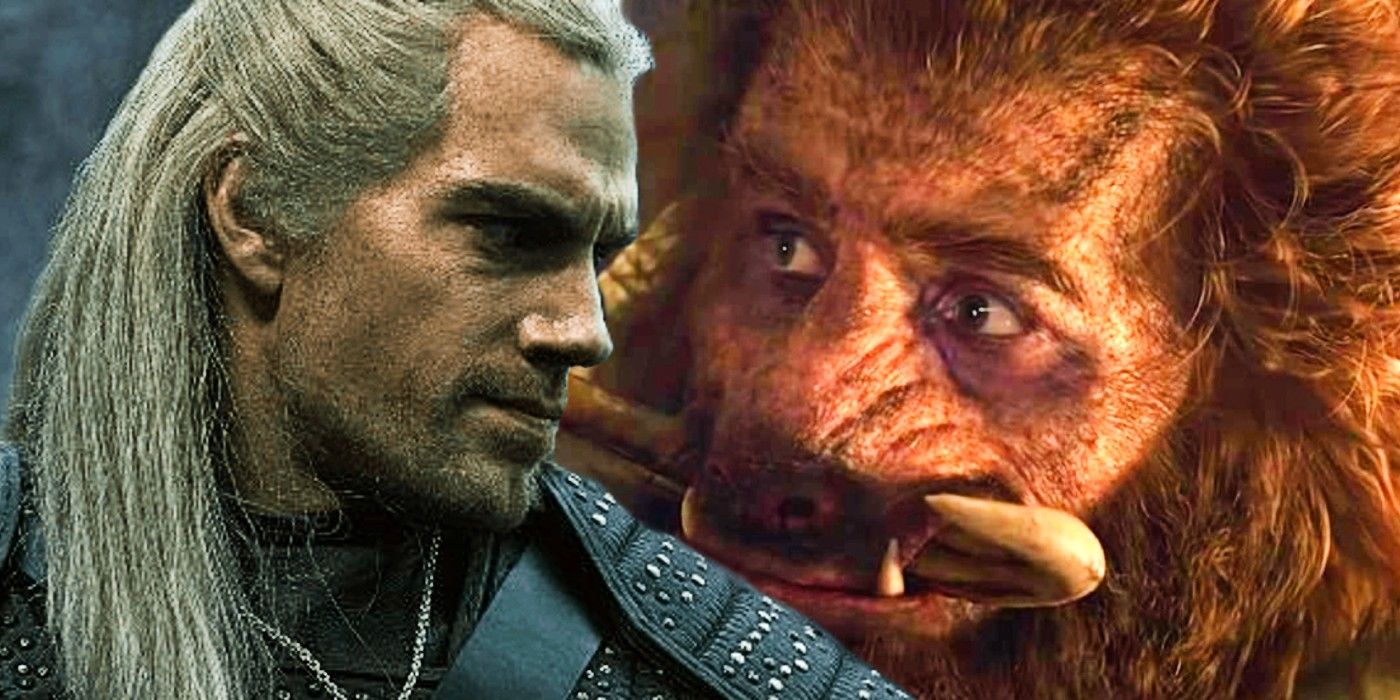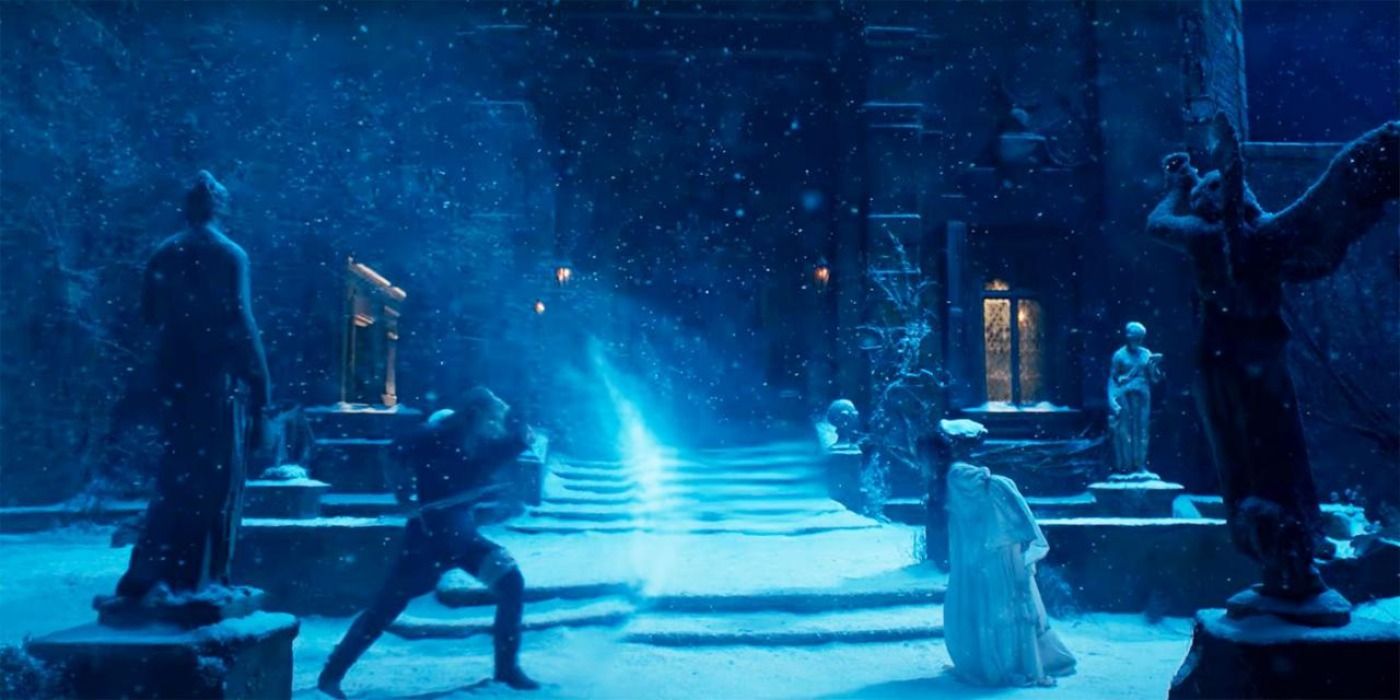Warning: Contains SPOILERS for The Witcher season 2
The Witcher season 2's strongest episode was undoubtedly episode 1, "A Grain of Truth": an episode that demonstrated everything wrong with the wider series by executing its self-contained narrative so well. The new season started off with a bang as the audience picked up with Geralt of Rivia (Henry Cavill) and his child surprise, Ciri (Freya Allan). Though the series finale was also a great episode, the sheer simplicity of episode 1 distilled everything great about Netflix's series, while also revealing some uncomfortable home truths about the series at large, particularly when it came to The Witcher's screenwriting.
The Witcher season 2, episode 1 saw Geralt and Ciri take refuge in an enchanted manor owned by Geralt's old friend, Nivellen, played by Game of Thrones alumni Kristofer Hivju, adorned in mostly-practical prosthetics. Nivellen had been the victim of a priestess' curse, allegedly for destroying her sacred temple, which saw him transform into a hulking beast. The episode primarily focused on this storyline, but it also featured Yennefer of Vengerberg and Fringilla recovering after the explosive events of the Battle at Sodden Hill in the season 1 finale. However, the bulk of the episode focused on Geralt, Ciri, and Nivellen uncovering the truth about the many nearby villagers who had been mysteriously murdered. This ultimately led Geralt to a confrontation with Vereena, a frightening, vampiric creature known as a bruxa.
"A Grain of Truth" was undeniably the most effective episode of The Witcher season 2 thanks to its streamlined narrative and short film format. While many other episodes in the series had focused on the wider narrative, introducing more and more characters and plot points without much rhyme or reason, episode 1 benefitted from being a straightforward, self-contained story, with its own beginning, middle, and end. It was clear that the episode was adapting a short story, and when it focused on Geralt and Ciri's storyline, it represented the show at its absolute best.
Episode 1 got to the heart of what fans loved about The Witcher from the very beginning. It was a simple story about an interesting monster that posed a serious threat to Geralt, Ciri, and even his horse, Roach. Its mystery was well established, as the opening scene featured a merchant and two women being brutally killed by the bruxa, while keeping the monster's identity a secret. If every episode of The Witcher was this streamlined, it could've rivaled Game of Thrones or Lord of the Rings as a pillar of fantasy entertainment.
The episode was perhaps most notable for its incredibly dark ending, which challenged the sometimes twee conflict that The Witcher had previously presented. As the audience had the chance to get to know and like Nivellen, and acknowledge his similarities to the hero of Beauty and the Beast, viewers found the ultimate revelation that he had actually sexually assaulted the priestess all the more shocking. The Witcher often struggled with creating memorable characters, barring Geralt, Ciri, and Yennefer. This made Nivellen all the more impressive, as his disturbing history and impressively realized design really helped him stand out as visually and emotionally impactful. Paired with Hivju's complex and convincing performance, Nivellen remained one of the most iconic characters the series had produced, despite only appearing once.
Opening season 2 with "A Grain of Truth" perhaps saw The Witcher peak too soon. It was a powerfully dark beginning to the second season, which twisted a well-known fairytale into a dark parable filled with memorable monsters, saving its most devilish for last. By comparison, the rest of The Witcher season 2's focus on a complex overarching narrative unfortunately just couldn't compete, despite some glimmers of greatness, especially in episode 8.


